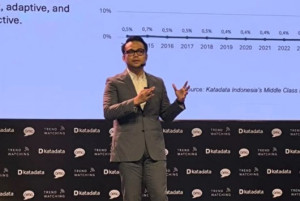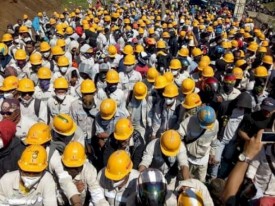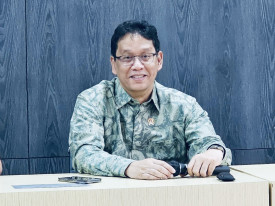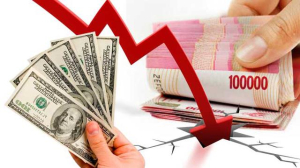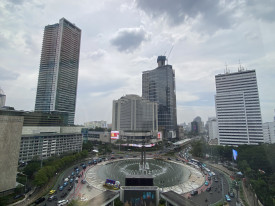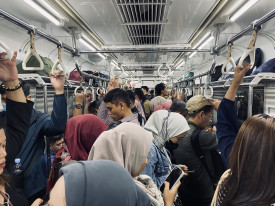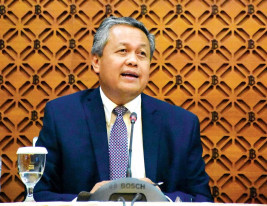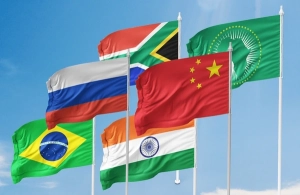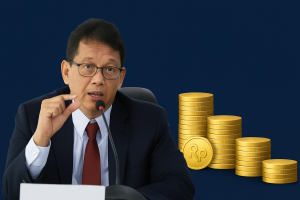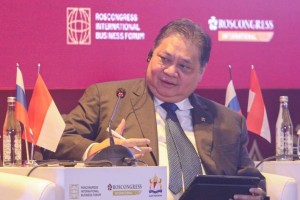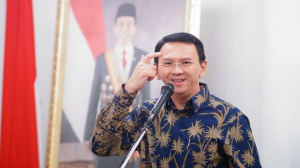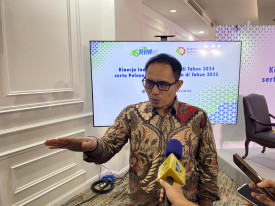#Macroeconomics
Indonesia’s middle class shifts focus on value over price
Katadata Insight Center (KIC) has observed a notable shift in consumer behavior among Indonesia’s middle class, driven by a recent decline in the size of this economic group alongside a growing number of aspiring middle class households.
Employers push for minimum wage formula adjustment to reflect cost of living
The Indonesian Employers Association (Apindo) has asked the government to refine the minimum wage calculation formula by aligning specific index values with the updated Decent Living Needs (KHL) standard after the number of goods and services used as KHL reference items surged from 64 to nearly 200 for the 2026 wage establishment.
Indonesia aims for 5.5 percent growth as Finance Minister meets IMF delegation in Jakarta
Indonesia’s Finance Minister Purbaya Yudhi Sadewa shared details of his official activities via his Instagram account @menkeuri after receiving a delegation from the International Monetary Fund (IMF) at the Finance Ministry in Jakarta on Wednesday, November 12, 2025.
Rupiah stagnant near Rp16,700 as market confidence remains weak
The Indonesian rupiah has yet to show signs of significant strengthening against the US dollar, with analyst suggesting that the currency’s stagnation reflects the market’s lingering doubts about Indonesia’s economic growth prospects.
Indonesia’s economy expands 5.04 percent in third quarter 2025
Indonesia’s economy grew by 5.04 percent year-on-year (yoy) in the third quarter (Q3) of 2025, slightly moderating from 5.12 percent in the previous quarter but remaining above market expectations, said a report from Statistics Indonesia (BPS) released on Wednesday, November 5, 2025.
Indonesia’s unemployment falls to 7.46 million in August 2025: BPS
Indonesia’s unemployment rate continued to decline this year, with 7.46 million people recorded as unemployed as of August 2025, down slightly from the same period last year, according to data from Statistics Indonesia (BPS).
BI holds key rate at 4.75% to balance growth, stability
After three consecutive rate cuts, the Indonesian Central Bank (BI) has decided to hold its benchmark interest rate at 4.75 percent, maintaining a delicate balance between supporting economic growth and preserving financial stability amid persistent global uncertainty.
Indonesia moves closer to joining BRICS’ new development bank
Indonesia has allocated funds to purchase shares in the BRICS-backed New Development Bank (NDB), marking another step in Jakarta’s growing engagement with the China-led bloc of emerging economies.
Regional leaders protest budget cuts as fiscal tensions rise between central, local governments
Eighteen regional heads visited Finance Minister Purbaya Yudhi Sadewa’s office in Jakarta on Monday, October 7, 2025 voicing protests over the government’s decision to reduce the 2026 regional transfer budget (TKD).
U.S. government shutdown halts Indonesia–U.S. trade tariff negotiations
Indonesia’s ongoing trade tariff negotiations with the United States have been temporarily suspended following the U.S. government shutdown, Coordinating Minister for Economic Affairs Airlangga Hartarto confirmed on Tuesday, October 7, 2025.
Ahok urges tax and customs reform to drive Indonesia’s economic growth
Former Commissioner at State energy company Pertamina, Basuki “Ahok” Tjahaja Purnama, has urged the government to focus on fiscal discipline and comprehensive reforms in the tax and customs sectors to accelerate national economic growth.
Economist questions BPS methodology behind Q2 growth
Concerns have mounted over Indonesia’s official economic growth data after the Statistics Indonesia (BPS) reported second-quarter (Q2) 2025 growth of 5.12 percent, with an economist arguing that it does not match leading indicators.


